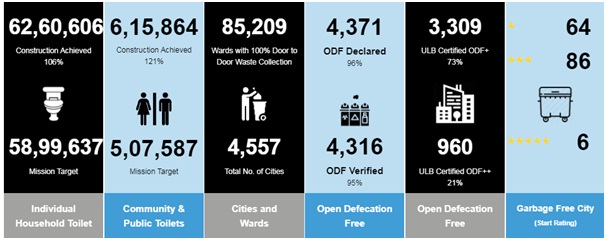7667766266
enquiry@shankarias.in
Why in news?
Prime Minister has announced the second phase of Swachh Bharat Mission-Urban (SBM-U) and Atal Mission for Rejuvenation and Urban Transformation (AMRUT) with a fresh promise to make India’s cities clean.
What is the state of affairs of Municipal Solid Waste (MSW) in India?
What is the second phase of scheme about?

What are the concerns of the scheme?
How to address these concerns?
Source: The Hindu, Down to Earth